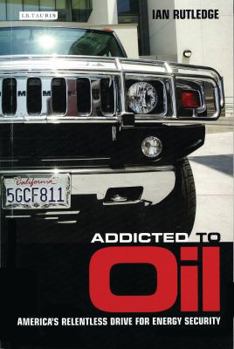Addicted to Oil: America's Relentless Drive for Energy Security
Select Format
Select Condition 
Book Overview
It has long been acknowledged that in America the car is king. However, America's car-orientated and car-dependent lifestyle goes beyond the culture of fast cars and freeways. In Addicted to Oil, Ian Rutledge explores the political, economic and social ramifications of the motorisation of the US economy. He argues that America's dependence on the car has created a lifestyle leading to oil needs which have heavily influenced US foreign policy in the modern era. Rutledge traces the origins of America's addiction throughout the twentieth century and explains how America's relations with the Middle East were developed through its quest for energy security. America's motorisation and its consequent demand for oil at predictable market prices was and continues to be an important influence on US policy towards Iraq - especially given the uncertainties relating to what has so far been the securest source of Middle East oil - Saudi Arabia.
Ian Rutledge argues that the war in Iraq was neither a war for 'freedom' or 'democracy' nor was it a plot to 'steal Iraq's oil', but rather an attempt to establish a pliant and dependable oil protectorate in the Middle East which would underwrite the soaring demand from America's hyper-motorised consumers. Addicted to Oil is the first book to undertake an in-depth analysis of the motorisation of US society which explicitly links it to America's foreign policy adventures, past and present. Addicted to Oil is essential reading for an understanding of America's international political priorities and its fraught relations with the Middle East.





